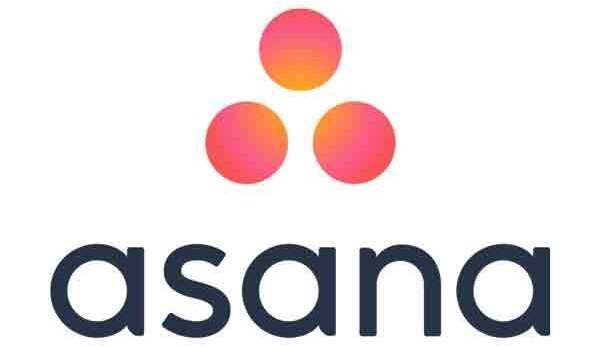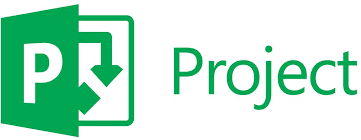Project management software is the central nervous system of the modern business. There are impressive options to suit every organisation and every budget.
Compare Project Management Software
Reviews
Monthly price from
£0
Best for
Small, medium and large businesses
Customer support
Phone and email
2839 reviews
Source: Trustpilot
Score: 4.4/5
Monthly price from
£0
Best for
Small, medium and large businesses
Customer support
Phone, email and live chat
11 reviews
Source: Trustpilot
Score: 3.8/5
Monthly price from
£0
Best for
Small, medium and large businesses
Customer support
Phone, email and live chat
156 reviews
Source: Trustpilot
Score: 3.4/5
Monthly price from
£0
Best for
Small, medium and large businesses
Customer support
87 reviews
Source: Trustpilot
Score: 2.8/5
Monthly price from
£7.50 per user
Best for
Small, medium and large businesses
Customer support
Phone, email and live chat
0 reviews
Source: N/A
Score: /5
Monthly price from
$0
Best for
Small, medium and large businesses
Customer support
Phone and email
23 reviews
Source: Trustpilot
Score: 2/5
Monthly price from
£0
Best for
Small, medium and large businesses
Customer support
299 reviews
Source: Trustpilot
Score: 1.9/5
Monthly price from
$0
Best for
Small, medium and large businesses
Customer support
Phone and email
70 reviews
Source: Trustpilot
Score: 4.6/5
Monthly price from
£0
Best for
Small, medium and large businesses
Customer support
116 reviews
Source: Trustpilot
Score: 4.3/5
Our comparison table includes providers that we receive commission from. Our table is ordered according to our commercial arrangements.
Our guide to project management software
Project management is the crucial secret ingredient that keeps successful businesses running. Coordination is vital for even the smallest organisations, and you need tools that facilitate collaboration and structure. Good project management software offers this and more.
What can project management software do for me?
Project management software sits at the heart of your organisation. It’s the central node through which all of your workflows run, enabling your people to work together more effectively and giving managers the insight they need in order to meet deadlines, maintain quality, and allocate resources efficiently.
The best project management software will not only be flexible enough to adapt to your existing working patterns, but will also encourage organisational best practices simply through its use. It will be customisable enough to suit your specific needs, but sufficiently scalable that it remains useful as your business grows. It will gather rich sets of data to help managers make informed decisions about budgets, resource allocation, and delivery. Finally, it should also be available wherever your business happens, and on a range of devices. To this end, most of the major project management solutions are now available in the cloud, allowing you and your teams to stay in sync even when they’re not at their desks.
How might I choose the best project management software for me?
There’s a large and growing number of project management options on the market, each of which has its own distinct characteristics and some of which may be more suited to specific business types than others. There are a few key factors to bear in mind when choosing your project management software. These include:
• Ease of use. The best project management software is the one you will actually use. There’s no sense in opting for an all-bells-and-whistles platform if you and your team aren’t comfortable using the interface. Thankfully, many of the major project management tools now on the market have benefited from countless hours of design work to make them accessible and (dare we say it) even fun to use - but they each have very different interfaces, some of which may feel natural while others may feel like a chore.
• Methods and customisation. Some teams are already wedded to a particular organisational method, for example kanban or scrum. Similarly, some project management tools are designed with specific methodologies in mind, and you should consider this when making your choice. Many, however, are designed to be useful across many different methodologies - even if it’s one your team have invented themselves! Customisation is key here. Make sure you test each option with ‘real world’ scenarios to understand whether or not the customisations on offer are right or sufficient for your specific needs.
• Collaboration tools. Collaboration is at the very heart of project management. You need a tool that allows you and your team members to organise their own work, but that also facilitates efficient collaboration both within your organisation and, potentially, with clients or other stakeholders. It’s also important that managers can clearly understand what’s happening and what’s required, as well as any bottlenecks or inefficiencies. Good project management tools will provide all these things.
• Visualisation features. Visualisation is often treated as an afterthought in project management, but it can be an immensely powerful tool for increasing efficiency across your organisation. Sadly, it’s also where some of even the biggest names still fall short. You’ll need to think about the types of data you want to visualise, and consider which platforms enable that. This might be as simple as a calendar view of tasks and deliverables, but you might well also want to see a deeper dive into things like bottlenecks, dependencies, and resource allocation.
• Interoperability. Whatever project management tool you choose, you’ll still be using a raft of other platforms and software to run your business and carry out work. Most project management software is highly compatible with the majority of critical everyday tools such as Google Docs, but if you’re using more unusual or even bespoke software, you should carefully check what integrations are on offer. Remember that tools such as Zapier can be useful for expanding the range of integrations already provided ‘out of the box’.
• Mobile access. Remote access is now vital for many teams, and it’s crucial that your work remains faultlessly in sync wherever it’s being conducted. While progress is being made in this area, the quality of mobile apps offered by the major project management platforms can vary quite significantly. Make sure you test-drive them on mobile as well as desktop before making a decision.
• Price. Finally, of course, you need to consider price. Thankfully, there’s a project management solution to match virtually every budget. Some of the leading names even offer free tiers, although, while they might seem generous at first, these often lack vital collaboration tools or place limits on the number of projects or tasks you can run at once. If you’ve been won over by a specific tool but can’t find a plan that works for you, it’s worth contacting their sales teams directly - they will often be willing to budge on price in order to win your business.











